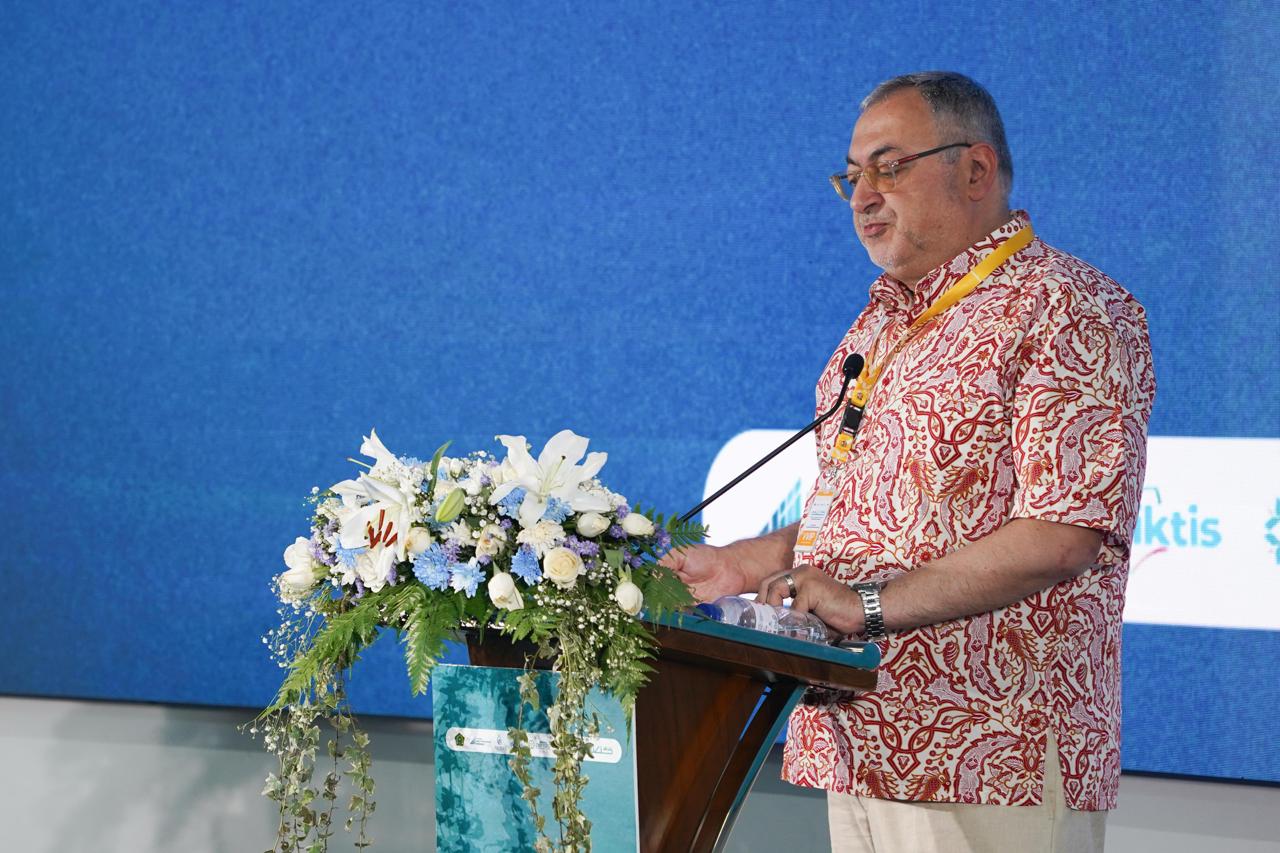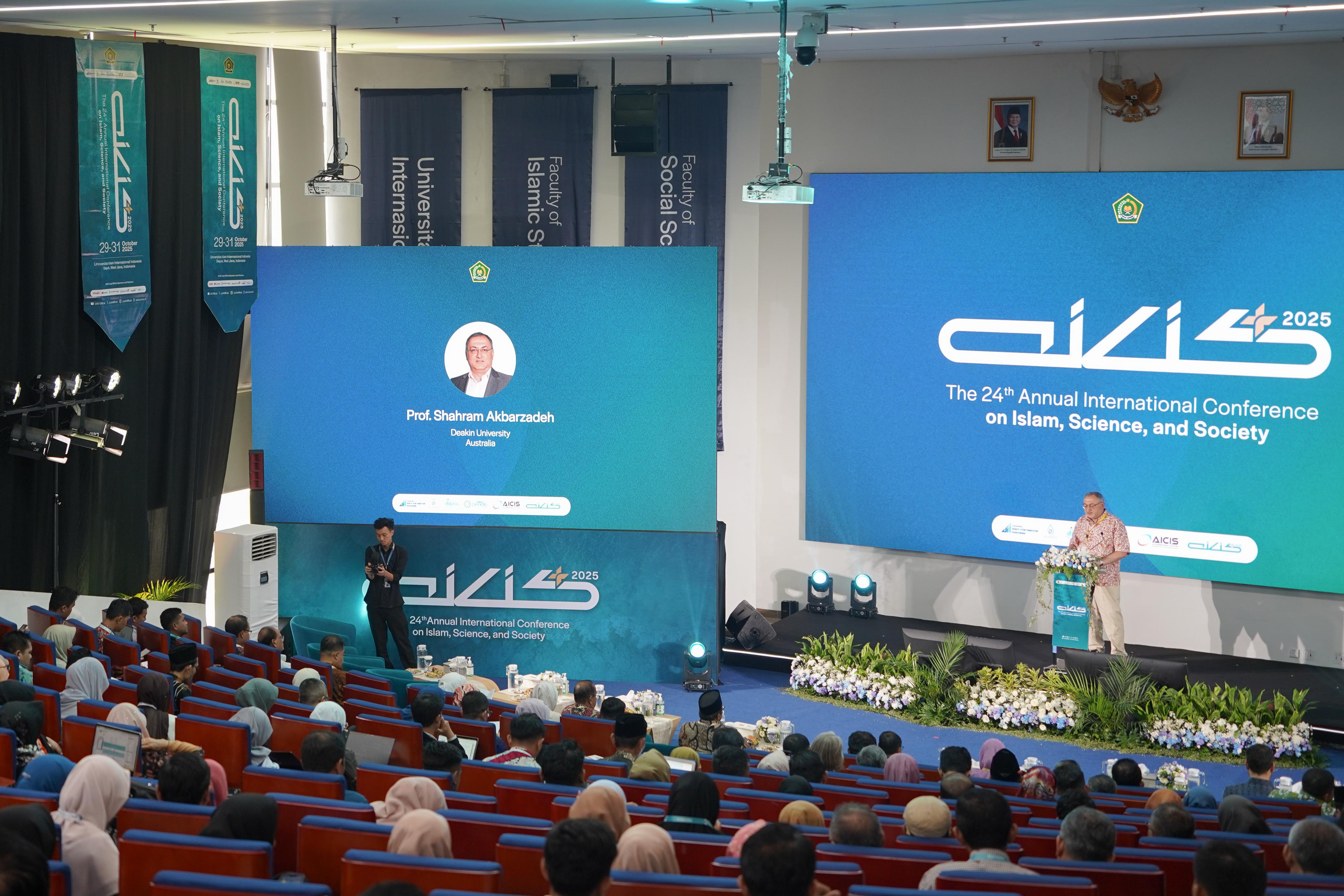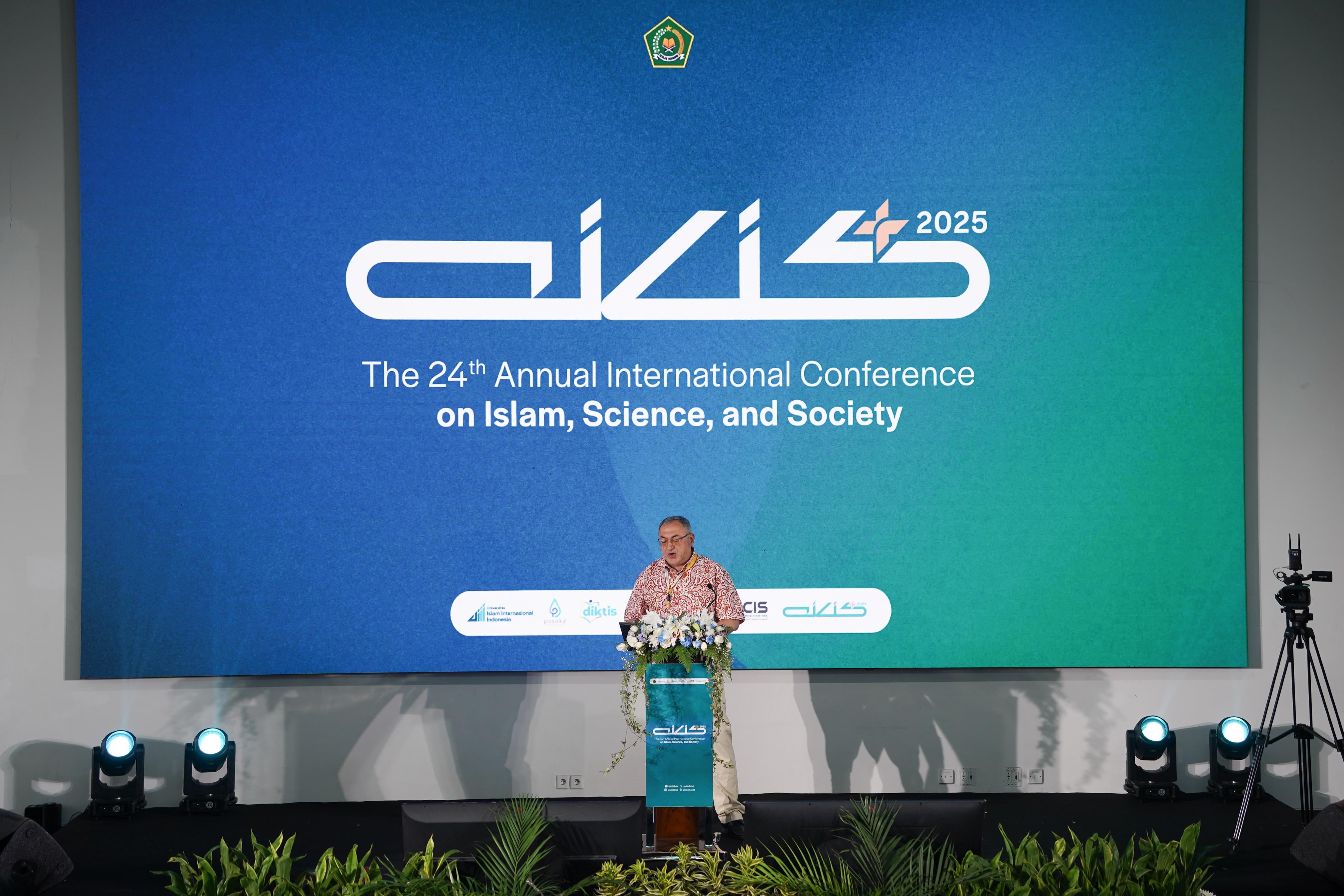More From News
UIII Builds a Bridge to Costa Rica
February 26, 2026
November 3, 2025
Contributor: Maryam Hameed | Photo: Anza Zahya Qeysha & Ihsan-Isah Imam Zaman

The second day of AICIS+ 2025 featured an inspiring and thought-provoking lecture by Prof. Shahram Akbarzadeh from Deakin University, Australia, who highlighted Indonesia’s exemplary leadership in promoting International Humanitarian Law (IHL) and the role of Islamic ethics in shaping responsible governance and global engagement.
Prof. Akbarzadeh emphasized that Islamic thought has evolved dynamically to meet the moral and social challenges of changing times. At its core, Islam advocates for the protection of civilians, prevention of harm, and promotion of justice and compassion, even during conflict. These timeless principles, deeply rooted in the Quran and the teachings of Prophet Muhammad (peace be upon him), closely mirror the spirit of International Humanitarian Law.
 Through this ethical framework, the nation’s diplomatic conduct reflects how faith and governance can work hand in hand to advance humanitarian ideals. Prof. Akbarzadeh underscored the country’s long-standing support for Palestine, describing it not merely as a political stance but a deeply moral and historical commitment grounded in anti-colonial values and the pursuit of justice.
Through this ethical framework, the nation’s diplomatic conduct reflects how faith and governance can work hand in hand to advance humanitarian ideals. Prof. Akbarzadeh underscored the country’s long-standing support for Palestine, describing it not merely as a political stance but a deeply moral and historical commitment grounded in anti-colonial values and the pursuit of justice.
He also noted that successive presidents have consistently upheld these humanitarian values, ensuring continuity in ethical foreign policy. During the Gaza crisis in 2024, for example, President Joko Widodo’s call to respect IHL reaffirmed the nation’s enduring empathy and moral responsibility in the face of human suffering.
 A key highlight of the lecture was the discussion on Wasathiyyah Islam, which promotes balance, tolerance, and peaceful coexistence. This approach enables the country to harmonize religious principles with modern governance while countering extremism and fostering global understanding.
A key highlight of the lecture was the discussion on Wasathiyyah Islam, which promotes balance, tolerance, and peaceful coexistence. This approach enables the country to harmonize religious principles with modern governance while countering extremism and fostering global understanding.
Prof. Akbarzadeh concluded that ethical leadership and humanitarian diplomacy define the country’s strength, not through power or dominance but through moral integrity and compassion. His message resonated deeply with the audience, offering a powerful reminder that true global influence stems from justice, empathy, and a sincere commitment to humanity.
Universitas Islam Internasional Indonesia